IFPMA @preICDRA2016 prior to the 17th International Conference of Drug Regulatory Authorities
Date
26 - 29 November 2016
Time
15:30 to 20:00
Location
Westin Cape Town, Da Gama/Diaz room, Convention Square, Lower Long Street, Cape Town 8001, South Africa
Attendance
This event has now passed. To browse our upcoming events click here.
As regulatory stakeholders from around the world meet at the 17th ICDRA in Cape Town, South Africa, an open #preICDRA2016 conference, titled “Patients Are Waiting: How Regulators Collectively Make a Difference” will be convened from the 27-28 November 2016 at the International Convention Centre (ICC) in Cape Town. This conference will bring together more than 400 experts from drug regulatory authorities, academia, non-governmental organizations, international organizations and manufacturers.
Experts from IFPMA’s regulatory groups will be actively involved at Pre-ICDRA as speakers on important related sessions, such as the way forward for lifecycle management; stakeholders’ collaboration in emergency situations and others;
IFPMA-IPASA Event at the margins of #preICDRA2016
On Saturday, 26 November (15:30-20:00), a special event at the Westin Cape Town will be co-hosted by IFPMA and IPASA. For more information, click here. All those interested are welcome to attend!
Program
IFPMA-IPASA Event at the margins of #preICDRA2016
Westin Cape Town, Da Gama/Diaz room, Convention Square, Lower Long Street, South Africa
Panel 1: Lifecycle management: Improving post-approval processes to ensure availability of medicines and vaccines for patients
Regulatory initiatives focused on lifecycle management (e.g. labelling, safety updates) are important for sustaining innovation and the supply of medicines and vaccines. However, today we still experience reduced medicine availability, drug shortages and interrupted supply due to heterogeneous regulation. Join this panel session to hear what leading regulatory experts have to say about potential solutions and the future of lifecycle management.
Coffee/Tea Break
Panel 2: #patientsRwaiting: Why regulatory system strengthening matters
A panel moderated by Gerry Rantseli Elsdon, South African Media Personality, International TB Ambassador and Humanitarian
Regulatory system strengthening provides an opportunity for all stakeholders to support patient access to new and existing medicines and vaccines by fostering sustainable health systems and addressing potential regulatory barriers. Many current initiatives, such as the African Medicines Regulatory Harmonization (AMRH) and the APEC Harmonization Center, are focused on enhancing regulatory systems and sharing best practices at both national and regional levels. Hear what the experts have to say about these initiatives and potentially what more needs to be done.
Cocktail Reception
17th International Conference of Drug Regulatory Authorities
Cape Town International Convention Centre (CTICC), Cape Town, South Africa
Plenary 1: African Medicines Regulatory Harmonization Initiative – Moderated panel discussion
Workshop 1: EAC MRH-what has been achieved so far?
Workshop 3: Reducing inspections burden
17th International Conference of Drug Regulatory Authorities
Cape Town International Convention Centre (CTICC), Cape Town, South Africa
Workshop 5: Stakeholders collaboration in emergency situations: learning from Ebola, Zika and the R&D Blueprint
Workshop 6: Shortages of medicines: what regulators can do to help?
Workshop 9: Work sharing
Speakers
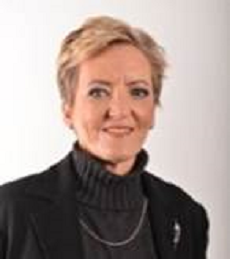
Lynette Terblanche is the Regulatory Affairs Director at MSD for English and Portuguese speaking African countries. She is responsible for regulatory compliance for products across approximately 28 countries.
Lynette has previous experience in the manufacture and registration of both human and veterinary products including veterinary products legislated under the Farms Feeds as well as Medicines Acts, as well as experience in community and institutional pharmacy.
Lynette is actively involved in both Trade and Professional Association working groups in South Africa: she serves on the Regulatory as well as the Sub-Sahara Africa working groups of IPASA; is Chairperson of the Southern Gauteng Branch of the Pharmaceutical Society of South Africa (PSSA) and is a member of the National Executive Committee of the PSSA. She also is an Exco member of SAAPI (South African Association of Pharmacists in Industry)
Lynette has a B. Pharm Hons (Industrial Pharmacy) from North West University. In 2012 she was designated as a Fellow of the Pharmaceutical Society for her contribution to the pharmacy profession.
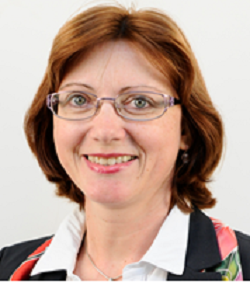
Scientist, Technologies, Standards and Norms Team, Group Lead, Norms and Standards for Biologicals, Department of Essential Medicines and Health Products (EMP), Health Systems and Innovation (HIS) Cluster, World Health Organization (WHO), Switzerland
Dr Knezevic has 23 years of professional experience in standardization, scientific and regulatory overview of biologicals. In 2000, she joined WHO Biological Standardization Programme. Since 2006, she has been leading the team for standardization of vaccines and biotherapeutics in WHO Headquarters. Main aspects of the work include development and establishment of WHO International Standards as well as the assistance to regulators, manufacturers and other users of these standards. Dr Knezevic is the author of many publications that made broad audience aware of WHO initiative in this area and is also contributing to the peer-review scientific journals with the international reputation.

Dr. Anders Vinther is the Chief Quality Officer of Sanofi Pasteur accountable for the Quality strategy and cGMP compliance and quality performance for all vaccine manufacturing, testing release and supply worldwide. He is a member of the Executive Committee at Sanofi Pasteur. One of Anders’ key focus areas is how companies foster a culture of quality through engagement of employees at all levels by volunteerism and corporate activism.
He is active in the global dialog on a living quality ecosystem which includes how innovation and the availability of pharmaceutical drugs can be ensured in our complex world.
Prior to working at Sanofi Pasteur Anders was VP of Quality at Roche and Genentech, before that co-founder of CMC Biologics, a contract manufacturing organization, and prior to that he was VP of Quality at Novo Nordisk. Anders is past Chairman of the Parenteral Drug Association’s (PDA) Board of Directors and currently leading the PDA group working on technical lifecycle management.
He has a M.Sc. and Ph.D. in Chemical Engineering from The Technical University of Denmark.
Anders lives in San Francisco, where he is the owner and winemaker at Flying Suitcase Wines.
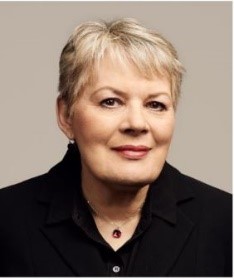
Dominic Kariuki is a Deputy Director at the Pharmacy and Poisons Board, Kenya from 2007.
He is supervising the activities of the directorate of products evaluation and registration (human medicines, veterinary medicines, herbal/complimentary medicines, medical devices and borderline products) and working on the inspection of Pharmaceutical manufacturing facilities for Good Manufacturing Practices.
Dominic was a Pharmacist incharge at the Ministry of Health, Gatundu District Hospital from 2003 to 2006.
He obtained his Bachelor of Pharmacy from the University of Nairobi, Certificate in Traditional Chinese Medicine from the Shandong University of Traditional Chinese Medicine, China in 2009 and Masters in Pharmaceutical Sciences from the University of Greenwich, UK in 2015.
Gerry is best known as a South African TV programme and continuity presenter with M-Net. She was also the host of the much publicised reality TV show, “Big Brother”. On the corporate stage, Gerry is not only a highly regarded Master of Ceremonies, but also an inspirational speaker and Stop TB Ambassador. YouTube – wealthwisetv, sabctopbilling, mzansi my top 10, hellodoctor, young economist of Africa, baby2momeggs.
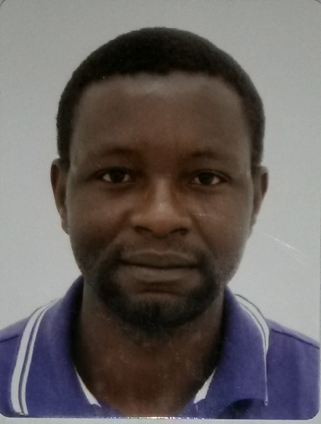
Luther Gwaza is a Consultant Regulatory Officer with the Medicines Control Authority of Zimbabwe and a World Bank Consultant on the SADC Medicines Regulatory Harmonization (MRH) Project. He has been involved in various consulting assignments for the WHO, DFID funded programme SARPAM, USAID funded programmes SPS/SIAPS, and World Bank Group among others, on medicines regulation in Africa and Central Asia. Previously, he worked as a pharmaceutics lecturer at the University of Zimbabwe until 2012. Luther has been a visiting Fogarty Research Fellow at the School of Pharmacy, University of California San Francisco (UCSF) in 2006 and 2010 working on pharmacokinetics and drug interactions. He has published scientific articles in peer reviewed journals on drug interactions, and bioequivalence. He holds a bachelor of pharmacy (honours) and master of philosophy (MPhil) in pharmacology, both from the University of Zimbabwe, and a PhD in Pharmaceutical Policy and Regulation from The Utrecht University in the Netherlands.
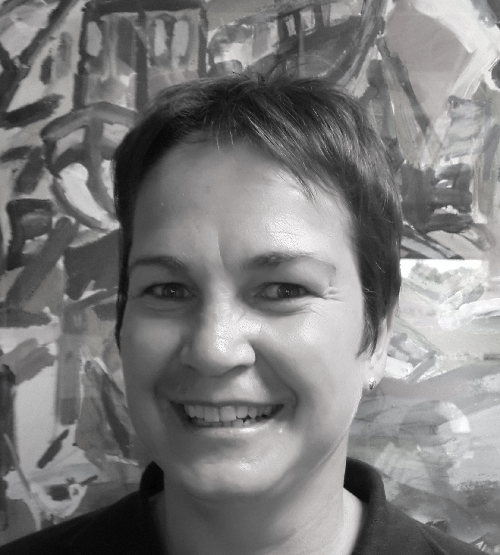
Dr. Jeanette Lotter joined the Medicines Control Council as Director: Medicines Evaluation & Research, in July 2016. She is a registered pharmacist with Master’s and Doctorate degrees in Pharmaceutical Chemistry, as well as post-doctoral and research experience in Chemical Biology.
She has held various positions at academic institutions (including North-West University, the University of the Free State and the University of the Witwatersrand), as well as at para-statal and private research organisations. More recently, she has held various positions in the Innovative Pharmaceutical Industry, in senior project management, commercial and technical positions, including responsibilities across Sub-Saharan Africa.
In her current role as Director at the Medicines Control Council, she is responsible for the Biological Medicines, Veterinary Medicines, Complementary Medicines and Pharmaceutical & Analytical (Pre- & Post-registration) Units.
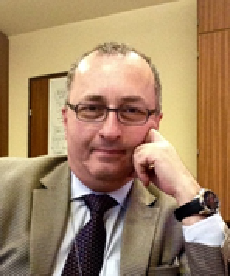
Dr Samvel Azatyan is a clinical pharmacologist with a Ph.D. degree in clinical pharmacology and medicines regulation. From 1992 – 1999 Dr Azatyan has served as a deputy director at the National Medicines Regulatory Authority of Armenia while also teaching clinical pharmacology at the National Institute of Health of Armenia.
In 1999 Dr Azatyan began his work at the European Regional Office of the World Health Organization in Copenhagen, Denmark. In 2000 Dr Azatyan has worked at the Center for Drug Evaluation and Research (CDER) of the US Food and Drug Administration, as a seconded researcher, and in 2003 joined the World Health Organization’s Headquarters in Geneva, Switzerland.
Currently Dr Azatyan is leading the Group on Regulatory Networks and Harmonization in the team of Regulatory Systems Strengthening (RSS) within the Department of Essential Medicines and Health Products. The RRS Team supports activities involved in assessing national medicines regulatory authorities/systems (NMRAs) to identify needs, assisting NMRAs in the development of institutional plans of corrective measures, and supporting training and regulatory capacity building. The Team has also been active in reviewing the regulatory assessment tool, providing feedback on implementation of existing WHO guidance, norms and standards, developing training materials, developing internal procedures, developing and maintaining technical competence of regulatory staff, and enhancing technical cooperation with partners within the Organization and outside. Most important areas of work for Regulatory Systems Strengthening Team include supporting and promoting regulatory cooperation, harmonization and networking globally.

Kawaldip Sehmi is the CEO of the International Alliance of Patient’s Organizations. He has an academic background in Public Health and Law. He has held the position of a managing director of an international children’s legal centre, leading a team of international lawyers working on the rights of the child, including right to health, and served as the CEO of an international mental health charity specialising in niche mental health services supporting young people and adults with complex mental health, personality disorder and substance misuse problems. Supporting clients access legal services and offering information, advice, outpatient and residential care within therapeutic community settings.
A passionate advocate of WHO’s human rights based approaches to health and strengthening of the institutional and legal framework needed to support the achievement of the socioeconomic determinant of health goals within the sustainable developmental goals 2030 and universal health coverage SDG 3.8. He also brings commercial experience of running an international design and build partnership backed by an MBA degree.
Thomas Schreitmueller is Global Lead for Regulatory Policy at F. Hoffmann-La Roche. In this capacity he is leading and coordinating Roche’s regulatory policy activities and position development on regulatory policy topics including biotheapeutic and similar biotherapeutic products. He represents his company or industry associations in various WHO; ICH; IFPMA; EFPIA; EBE; BIO and FIFARMA biotech working groups and advisory boards. He is also an active member of different CASSS CMC Strategy Form Organizing Committees .
Prior to his current position at Roche, he occupied various positions in the biotech area (e.g. technical project management, analytical R&D, quality control). He holds a diploma and PhD in Biochemistry from the University of Munich and has delivered lectures on biotechnology related topics all over the world.

Sharon Olmstead is the Head of Regulatory & Development Policy at Novartis. In this position, she manages teams based in Europe, North America, and Asia-Pacific responsible for global development policy and regulatory intelligence activities within Regulatory Affairs, Global Drug Development.
Prior to rejoining Novartis in 2011, Sharon was named Head of U.S. Regulatory Policy at Merck after the acquisition of Schering-Plough. She joined Schering in November 2003 as vice president of regulatory policy and intelligence following similar regulatory positions at Pharmacia and Novartis.
Sharon worked at the Food and Drug Administration (FDA) for six years prior to working in the pharmaceutical industry. She held several positions of increasing responsibility including Consumer Safety Officer in the Division of Metabolic and Endocrine Drug Products, Consumer Affairs Specialist in the Office of the Commissioner and Science Policy Analyst in the Office of the Center Director, Center for Drug Evaluation and Research. Sharon began her career as a Biological Research Technician at the Uniformed Services University of the Health Sciences, participating in preclinical research in the areas of spinal cord injury and behavioral pharmacology. She received a bachelor’s of science in biology from Old Dominion University in the US.
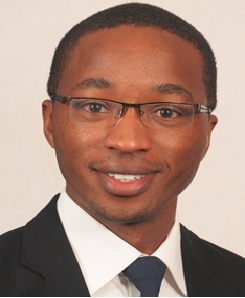
John is currently working at Bayer as the Head of Regulatory & Quality Assurance responsible for East & West Central Africa Region based in Kenya. He has previously held different roles in Pharmacovigilance and quality control within the Pharmaceutical Industry. He has been an active member of several industry associations including KAPI (Kenya Association of Pharmaceutical Industry) where he has served as member since 2013. He is the immediate past Executive Secretary of KAPI and currently serves as an Executive Committee member in KAPI in addition to the Research & Regulation committee.
John is passionate about supporting the streamline of regulatory systems and policy in Kenya and beyond and is currently a member of the Africa Regulatory Network (an adhoc group within IFPMA RPTTS committee) where he serves in various capacities including as the East Africa Countries subgroup lead.
John is a Pharmacist by training with an additional Executive MBA qualification from Strathmore Business School in Kenya.
Stephan Rönninger holds a PhD and engineering degree in organic chemistry from the Technical University of Darmstadt, Germany. He is working in International Quality, External Affairs on Amgen’s operational policy outreach and external ambassador program. He collaborates cross-functional internally and with external stakeholders including authorities, associations and competitors on topics regarding quality management, and good manufacturing and distribution practice (GMDP) as well as CMC topics by providing comments on regulatory guidelines, intelligence, and training.
He also represents Amgen in the European industry association EFPIA in the Technical Development Expert Group (TDEG) as vice-chair and is a member of the Supply Chain Working Group (SCWG). He represents EFPIA in ICH on the management sub-committee training, and was a member of ICH Q9, ICH Q-IWG on Q8/Q9/Q10 and in the ICH Q7-IWG. In the Parenteral Drug Association (PDA) he is elected for the board of directors, co-chairs several international conferences and training events (e.g. with PIC/S).
Following his postdoctoral studies, from 1992-2013, Stephan worked for Roche in an API manufacturing site with responsibilities for laboratory and project management, and served as a production manager, within the Quality Assurance and Quality Management department. In 2003, he joined the Roche Global Quality organization with leadership responsibilities for the Roche Global Quality System and external collaborations. He joined Amgen in 2013.
He has received numerous awards, including the FDA CDER Leveraging & Collaboration Award for collaboration in developing a web-based knowledge base used for industry and regulatory briefings on ICH Q9, Quality Risk Management 2011 and Certificates of Appreciation / Recognition by PIC/S, Health Canada and the South Korean and Turkish agencies.
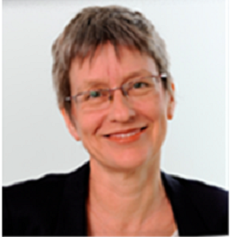
Melanie Saville is Head of Late Development, Clinical and Medical Affairs at Janssen Vaccines. She is a physician specialized in virology with more than 15 years’ experience in the vaccine industry.
Joining Wyeth in 2000 in the UK, Melanie led the phase III clinical development of a live attenuated intranasal influenza vaccine. In addition she contributed to a number of vaccine projects in early development involving adjuvants, immune modulators, viral vectors and conjugate technology.
In 2004 she joined Sanofi Pasteur in Lyon, France where she initially led the clinical influenza franchise having oversight of the clinical development of a number of differentiated seasonal influenza vaccine and pandemic vaccines. She then led the clinical development of a candidate dengue vaccine moving into phase III. Subsequently she became the Head of Clinical Development for a portfolio of vaccine projects managed out of the EU site. In 2013 she took on a broad role of Chief Medical and Clinical officer Dengue having responsibility for licensure of the candidate Dengue vaccine until the end of 2015. Over the years, she has contributed to the licensure of a number of vaccines for seasonal and pandemic influenza, pediatric combinations, Rabies and Japanese Encephalitis and Dengue in Europe, US and the international area.
Prior to joining industry, Melanie worked as a clinical virologist and conducted research at the Health protection Agency in London in the field of RSV and HSV.
Melanie obtained her medical degree from University College, London in 1993. She also obtained a Bachelor of Science in Molecular Biology from University College, London and a Masters in Medical Virology from Imperial College, London.

Dr. Anders Vinther is the Chief Quality Officer of Sanofi Pasteur accountable for the Quality strategy and cGMP compliance and quality performance for all vaccine manufacturing, testing release and supply worldwide. He is a member of the Executive Committee at Sanofi Pasteur. One of Anders’ key focus areas is how companies foster a culture of quality through engagement of employees at all levels by volunteerism and corporate activism.
He is active in the global dialog on a living quality ecosystem which includes how innovation and the availability of pharmaceutical drugs can be ensured in our complex world.
Prior to working at Sanofi Pasteur Anders was VP of Quality at Roche and Genentech, before that co-founder of CMC Biologics, a contract manufacturing organization, and prior to that he was VP of Quality at Novo Nordisk. Anders is past Chairman of the Parenteral Drug Association’s (PDA) Board of Directors and currently leading the PDA group working on technical lifecycle management.
He has a M.Sc. and Ph.D. in Chemical Engineering from The Technical University of Denmark.
Anders lives in San Francisco, where he is the owner and winemaker at Flying Suitcase Wines.
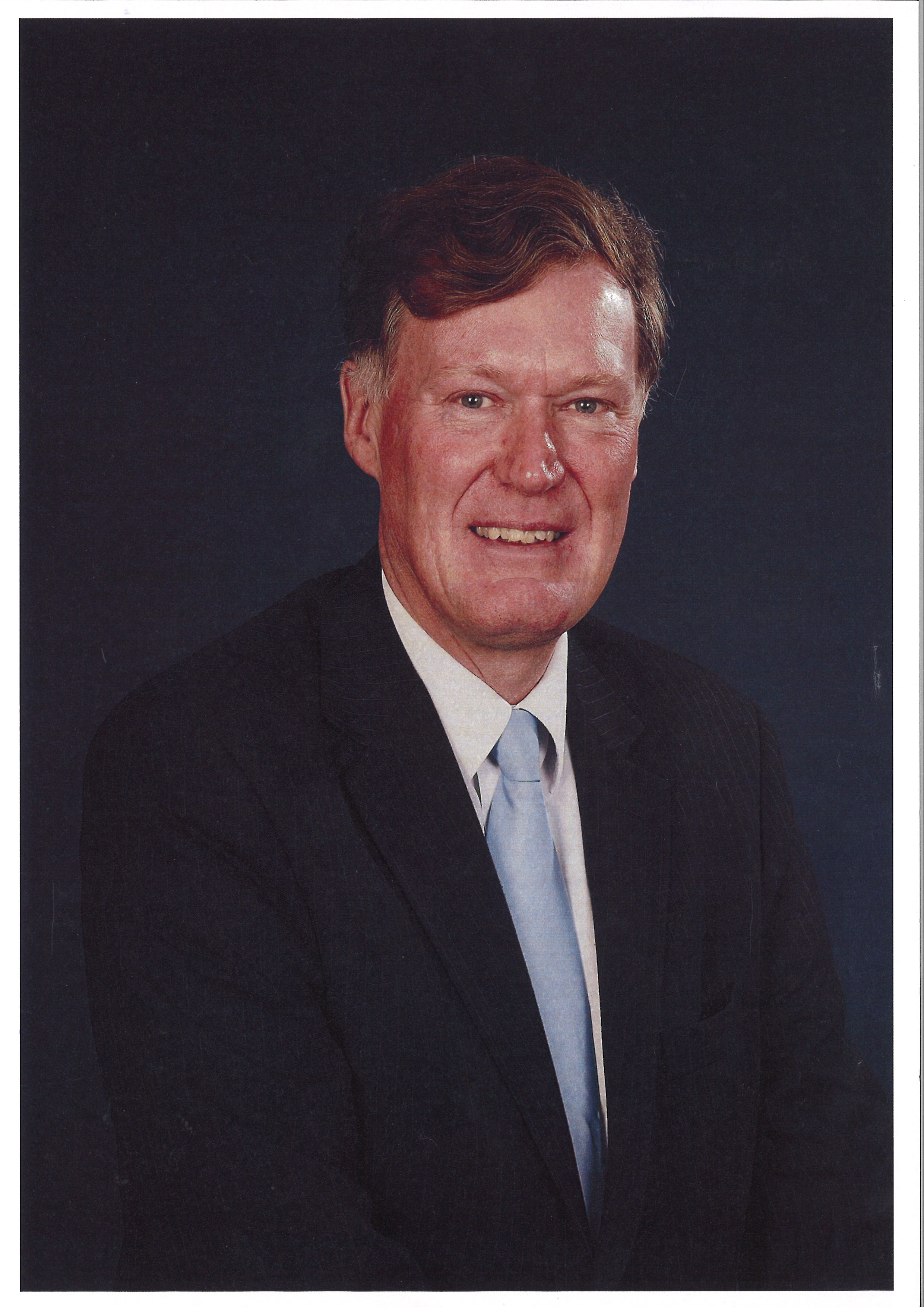
Dr Jefferys is currently the Senior Vice President for Global Regulatory, Government Relations, Public Affairs and Product Safety, Eisai Europe and Chairman of the Eisai Global Regulatory Council. He sits as a member of the European Trade Group of the UK Ministerial Industry Strategy Group and UK Innovation Board. He is Chairman of the ABPI Regulatory Affairs Group and a member of the Innovation Board and a member of several EFPIA committees including chairman of the European Regulatory Expert Group, member of the International Board Steering Committee, Brussels Strategy WG and the Paediatric Committee. He is co-chairman of the IFPMA RPTS and sits on the IFPMA Council. He represents IFPMA on the ICH Managers Committee.
He joined Eisai in January 2005 on retirement from the UK Civil Service. Dr Jefferys was involved with the creation of ICH and on the E5 and Geriatric Medicines Guidelines he joined the CMR International Regulatory Board in 1992 becoming Chairman of the Advisory Board from 2000 to 2004. He remains a member of the CIRS Board. In February 2000, he was appointed Chief Executive Director of the Medical Devices Agency for the Department of Health. He was a member of the UK Ministerial Healthcare Industry Task Force. David Jefferys has lectured extensively in Drug and Device regulation, also on Risk Management, Benefit/Risk Evaluation and Product Development. He was a consultant to the EU Commission and remains a medical device expert adviser. He is the author of many papers and book chapters. He was given the Distinguished Service Award of DIA in 1992. He was a visiting professor in medicine at the University of Newcastle and was Chief External Examiner in Translational Medicines at Cranfield University and for the ICRI He was President of RAPS in 2008 chairing the RAPS Board until July 2010.He was chairman and President of TOPRA in 2012 and a member of the Board from 2011 until 2014. In 2015 he was appointed to be a member of the Court University of Hertfordshire.


